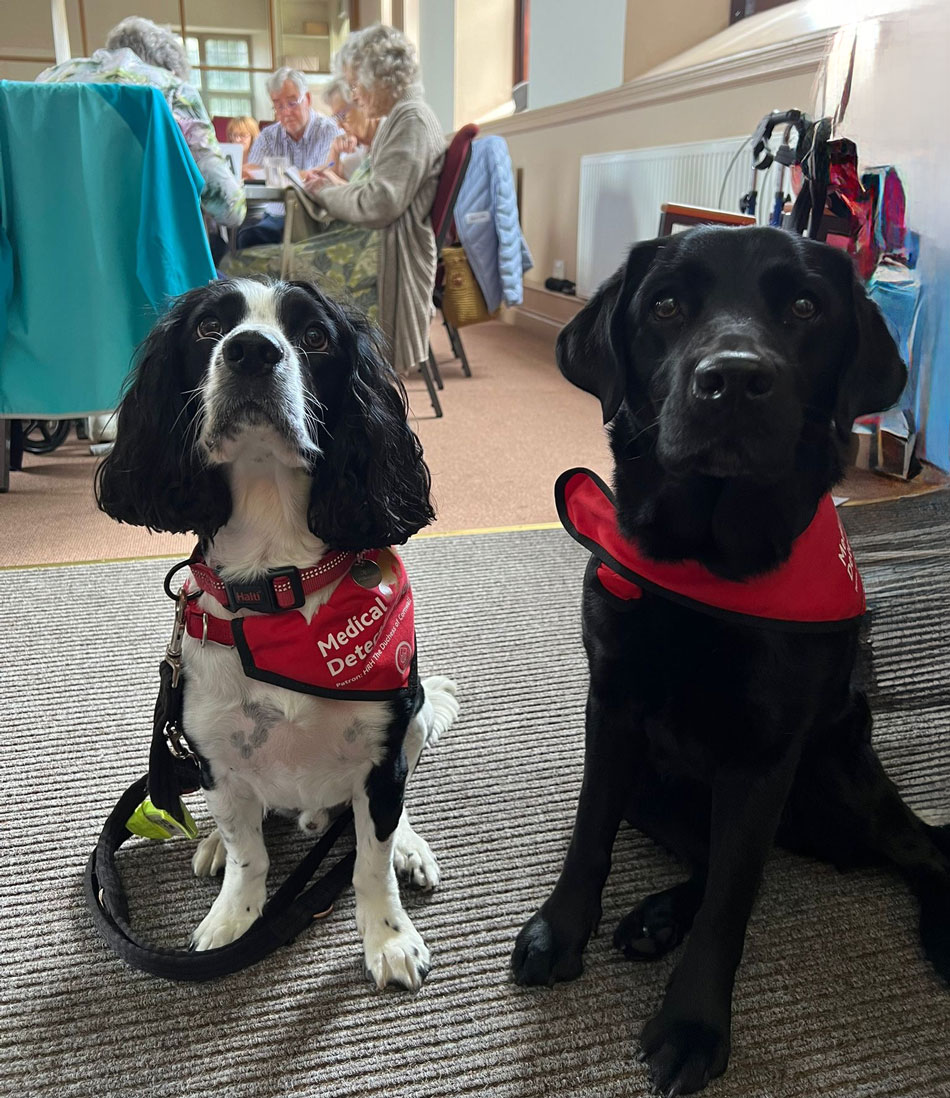In the UK in 2013/14, the NHS spent £434 million on treating 184,000 patients with unplanned admissions associated with a urinary tract infection (UTI). A retrospective observational study using linked health records from almost one million patients above 65 years old in England found that older adults (21%) had at least one clinically diagnosed UTI over the 10-year study period.
Early diagnosis is difficult to achieve and the present need for urine culture results cause further delays, taking up to 48 hours for laboratory tests to be completed.
UTIs can be complicated and life-threatening if left untreated, especially for vulnerable groups such as the elderly and individuals with neurological conditions and those such as spinal cord injuries, who are at a greater risk of developing complications. For these individuals, UTIs may progress rapidly and are the leading cause of hospitalisation.
We have started a new project to train dogs to detect the odour of UTIs. The dogs will be trained to distinguish between the odour of samples from patients with a UTI and samples taken from healthy volunteers.

These dogs will be known as Community Medical Detection Dogs which will help with early UTI diagnosis.
Successful results from a recent research study conducted by Assistance Dogs Hawaii: Detection of Bacteriuria by Canine Olfaction (Maurer et al. 2016) , suggest that dogs can be taught to quickly and accurately detect the odours associated with UTIs .
In the double blind validation study, using samples from almost 700 individuals of both sexes and a range of ages, dogs detected UTI positive samples with a sensitivity of 99.6% and a specificity of 91.5%.
When further challenged by being shown E.coli urine diluted with distilled water, the dogs’ accuracy was not affected. The dogs also detected samples with other bacterial infections such as Enterococcus, Klebsiella and Staphyloccus aureus and all dogs performed with similarly high accuracy: overall sensitivity was at or near 100% and specificity was above 90%.
This study supports our own research in collaboration with Imperial College London, investigating the ability of dogs to detect the bacteria Pseudomonas aeruginosa, which showed dogs were able to discriminate P. aeruginosa from other common bacteria (including Staphylococcus aureus and Moraxella catarrhalis) at over 90% sensitivity, even if they had not had previous exposure during training to the control bacteria.
Once our dogs have proved they can detect the odour in our training room, we’ll work in collaboration with the NHS and healthcare providers to transition a team of dogs to detect UTI via passive searching (dogs directly sniffing people). in the community.
Our first pilot is well underway with overwhelmingly positive feedback to date and an 89% uptake in searching. CMDDs have been training in places with vulnerable individuals such as the elderly to detect potentially life-threatening UTIs, alongside Community Assistance Dogs (CAD) to offer mental health benefits.
We have had an excellent response with 100% of respondents agreeing that they would likely give consent to be screened by a CMDD in the future and believe that the CAD service is likely to improve the mental health and physical wellbeing of users of the service.
The pilot is sponsored by The Pets Foundation and supported by Buckinghamshire Council Winslow and Villages Community Board, and we look forward to updating you on our full findings when the pilot study is completed.
We were among the first in the world to train search dogs to passively screen people and detect the presence of COVID-19; and our learnings from this model will be invaluable when deploying dogs for this project.
Continued exploration in this area of our work enables us to deploy our research as reality in a practical environment. This will be our first community-based project and trials are already underway in collaboration with a local council. We will expand on this project with a clinical trial to investigate the accuracy of this search service and hope to expand this around the UK as soon as possible.
Once trained, the dogs will present a new, immediate method of UTI detection, using a technique which is very relevant to people with neurological impairment, hospitalised patients and the elderly.
